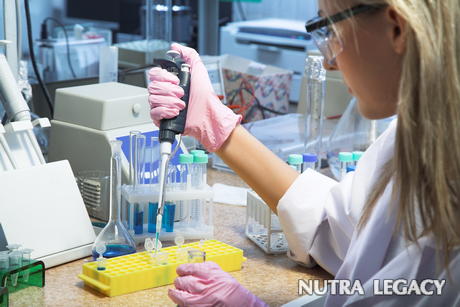What is Phytoestrogen?
Phytoestrogen is also known as dietary estrogen. Phytoestrogens make up a diverse group of naturally occurring, non-steroidal plant compounds. They occur in plants and plant products that include soy beans, grains, seeds, herbs, fruits and vegetables.

Phytoestrogen has a chemical structure similar to the function of the human hormone called estradiol. This makes it possible to cause estrogenic and anti-estrogenic effects. The similarity in chemical composition makes the compounds have an affect on human metabolism.
The name is derived from “phyto” – scientific name for plants – and “estrogen,” which is the duration of time of female mammal fertility. Phytoestrogen is not considered a nutrient as the lack of this in the diet does not result in any deficiency syndrome.
Some studies indicate that phytoestrogens have health benefits which include:
- Reduction of breast and prostrate cancer
- Reduction in cardiovascular effects
- Possible effects against osteoporosis
- Reduction of effects associated with age
- Treatment of hormone related diseases (such as female hormones)
- Possible anti-cancer effects (knowing your breast cancer facts could help here)
Dietary phytoestrogen from natural sources vary depending on the type of food. In a research project carried out in Canada, it was found that nuts and oil seeds contained the highest levels of phytoestrogen, followed by soy plant products.
The chemical compounds found in plants are thousands of times weaker than human estrogen (one type of female hormones). There is no proof, however, that phytoestrogens have any significant impact in easing menopausal symptoms.
Phytoestrogens are classified as isoflavones and lignans. Isoflavones, flavones and coumestans fall under the flavonoids category. These compounds are found in high quantities in soy, which is available through beans, tofu, milk and other products. Learning more about the role of phytoestrogen and breast cancer facts might be a good idea for women at high risk.
The information supplied in this article is not to be considered as medical advice and is for educational purposes only.
|
No Responses to “What is Phytoestrogen?” | ||||||||||||||





 2 Dec 2009
2 Dec 2009
So, I gather that you can get phytoestrogens from various products. But I don’t really like beans or tofu, and don’t drink much milk. What others can you recommend, or are there supplements for phytoestrogen that are equally good?January 18th, 2011 at 7:30 am